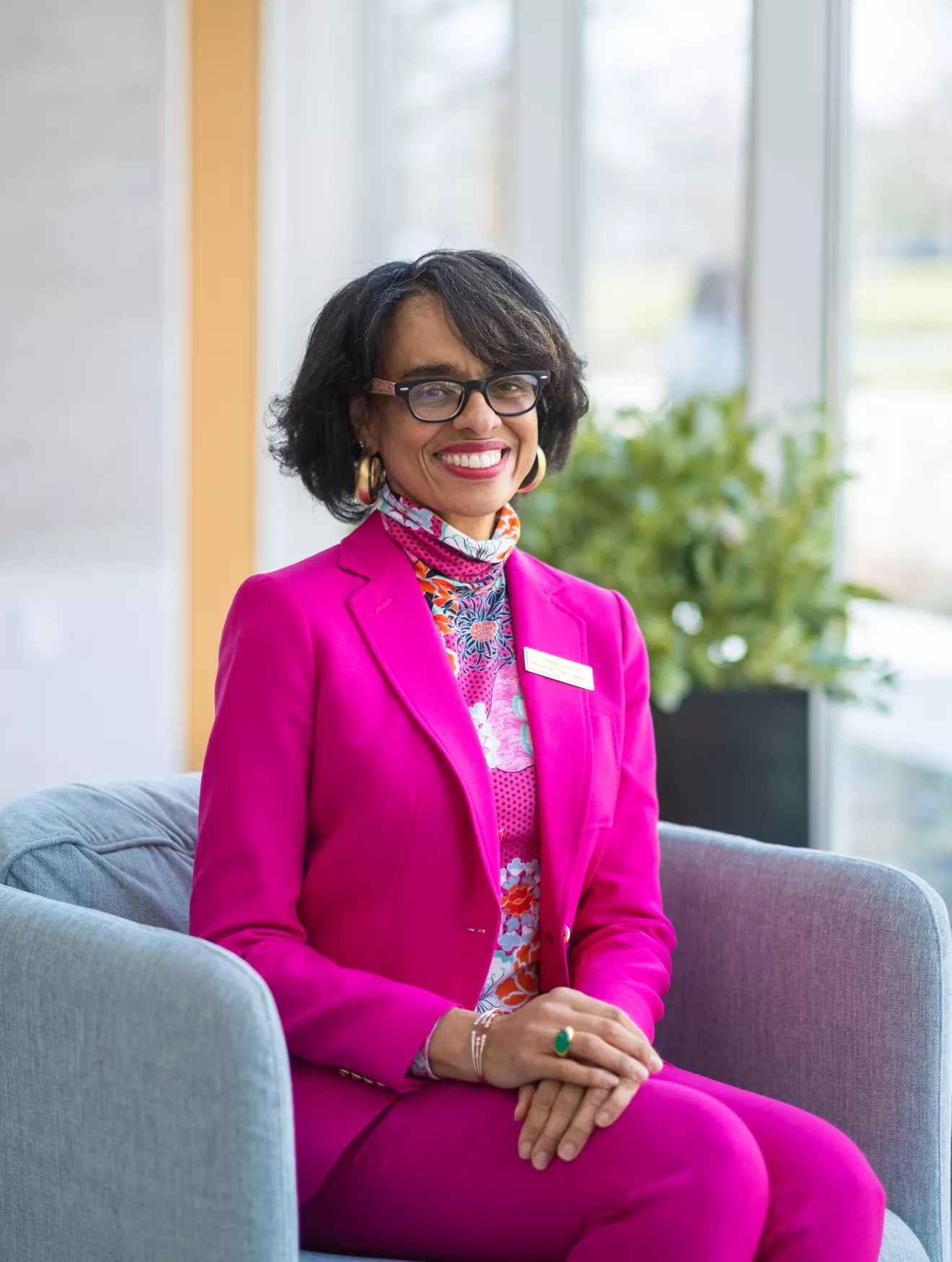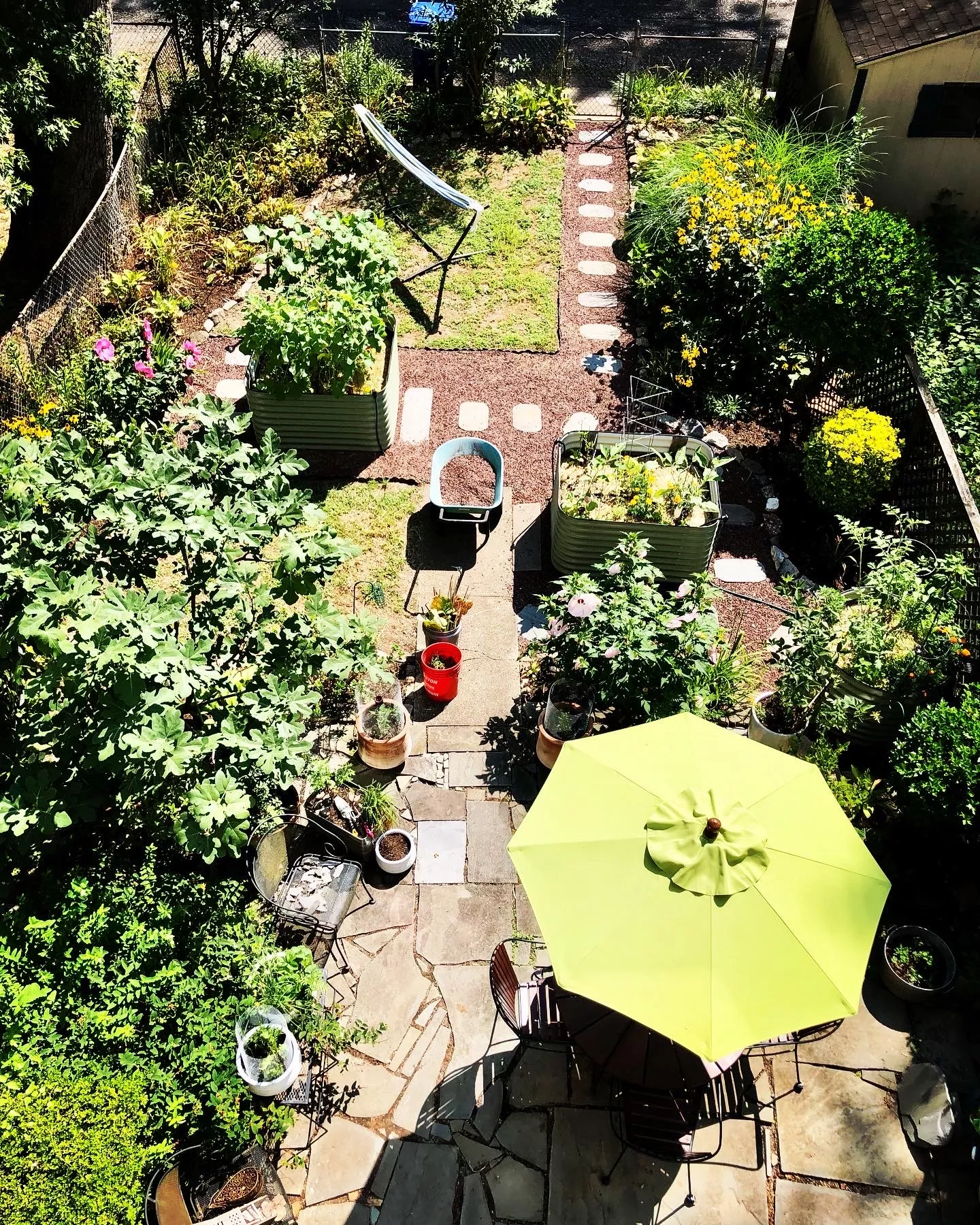
Reggie Jones has been at Bryn Mawr College since she graduated from the Graduate School of Social Work in 2001. She initially worked as a part-time counselor in counseling services following her graduation and then served as the counseling director from 2004-2020. Now the Associate Dean of Health and Wellness, we caught up with Jones to talk about her role and how she is cultivating holistic care on campus.
How was the transition into your current position of Associate Dean of Health and Wellness?
I’ve been the Associate Dean of Health and Wellness since February 2020, so for the first two years in this position, the pandemic was at the forefront of the work that we were doing. We were looking at the best choices around caring for our students, and consulting with public health to make decisions about student health and safety on campus, and that quickly transitioned to how we provide care for students when they are not here on campus.
What were some of the big projects and services you were involved in during those early Covid months?
We provide physical health medical services and psychological services to students on campus. During the first two years, we really focused on public health and safety measures, testing, introducing, and implementing universal precautions to the BMC community. Another important aspect was the culture shift in terms of how we relate to and connect with each other. Once we returned to campus masked and six feet apart, we worked diligently to cultivate and create a sense of safety, as well as help to support community members navigate loneliness and disconnection.
In the last year, I've been doing a lot of talking about what collective recovery and resiliency looks like for all of us. We've experienced this collective trauma as an institution, as a country, as the world. I spend a lot of time collaborating with students and colleagues around programming to cultivate collective resilience in our BMC community. That means we have to factor in how we support faculty and staff such that they also feel sturdy and resilient as they support students.
Cultivating collective resilience in the BMC community presents us all with an opportunity for healing related to the trauma of the pandemic and the racial violence that has happened and continues to happen in this country. Students from various backgrounds are holding this cumulative trauma, and it’s important to not only acknowledge this but to also offer opportunities for people to come together. One of the ways I've been doing this is by bringing folks together at the BIPOC Gatherings for faculty and staff. The feedback that I've gotten from those who have shown up is that being together is really healing. It's also less isolating to meet and get to know other BIPOC folks at the College. It’s really powerful to see faces that look similar to your own. It's nice to hear about different departments where people are working and to discover ways of increasing our social capital to better support students. These gatherings really help to cultivate a sense of belonging and mattering at the College.
What are some of your goals as Associate Dean of Health and Wellness?
I want to help cultivate a more holistic sense of wellness on campus that extends across campus, beyond Health and Wellness. Given that we are such a rigorous and dynamic academic institution, students can feel like their identity is distilled down to how well they perform academically. Some of that is internal and some are a function of external reinforcers. Although we don't talk about grades here at BMC, we do highlight academic excellence, which is important. But without the balance of also highlighting well-being in other areas, there can be a skewed perspective that you are only what your academics dictate. So, we’re trying to help students have a more balanced perspective of themselves with targeted programming that is preventive, proactive, and engaging.
The College has been very supportive and has done an excellent job of investing in student well-being. The new Health and Wellness Center in January of 2022 is a great example of this. Our neighbors in the new Student Life and Wellness Building are Pensby and Career and Civic Engagement, and we work collaboratively as Team Wellness to provide holistic programming for students across departments. I think this is one of the many tangible examples of our collective commitment to each student’s holistic well-being. Wellness Week, where all three departments offer wellness programming for students, staff, and faculty is yet another way we are working to model and demonstrate the use of a more holistic mindset on campus.
What kinds of programming can we expect for this year’s Wellness Week?
Wellness Week is coming up March 20th and we're really excited about it. It’s being planned in concert with Career and Civic Engagement, Pensby, the Health and Wellness Center, and student groups connected to each department. There will be a host of workshops and offerings focused on student and community wellness that happen throughout the week: a panel discussion on navigating graduate school admissions, a mindfulness walk, yoga, terrarium making, doodling to de-stress, and more. One event that has been very well received by the community is the community acupuncture sessions. We bring an acupuncturist to campus and students, staff, and faculty can sign up for an acupuncture session. We’ll also be bringing the Philly Goat Project. New this year, Paws and Affection will bring therapy dogs to campus. We’re working on a Wellness Poetry Slam for Saturday evening to close out Wellness Week 2023.
You’ve been at Bryn Mawr College for more than 20 years. What has motivated you throughout your time here?
While working with students during my graduate internship, students from all backgrounds often shared with me how important it was to see someone like me on campus. I feel committed to being a person that students can turn to for support. It’s important that students can see aspects of themselves represented on campus. Over the years, I’ve been able to advocate for students and help them navigate some difficult challenges. I’m grateful to serve as one of the many students' supports on campus.
How do you like to spend your time outside of work?
I’m an avid gardener. For me, gardening is a metaphor for how I think about wellness. Gardening is a test of trusting the process, staying the course, acknowledging mistakes and taking advantage of opportunities to start over and innovate. I love pulling weeds. It’s a great way of managing stress and connecting with the earth, engaging in sustainability practices by growing and eating food that I love.
I have a lovely daughter who is a labor and delivery nurse, and she’s an amazing person. I’m very proud of her, and her work and advocacy for Black and Brown mothers and their babies. Unfortunately, systemic racism results higher than average negative outcomes for these parents and their babies. Her advocacy has helped to save lives by encouraging her colleagues to examine their own implicit bias and how it may impact their practice.
As part of our effort to build community, College Communications plans to regularly highlight College staff members. If there's someone you think we should feature, please let us know at communications@brynmawr.edu.
